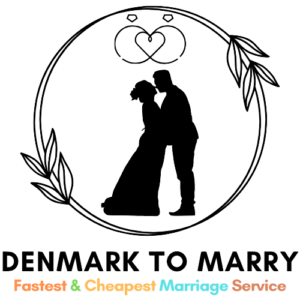FAQ
FAQ
YOU ASK. WE ANSWER!
Marriage in Denmark
- Passport (International) or ID Card ( EU citizens)
- Residency Permit (for people residing in EU)
- Valid Schengen Visa (who are not residing in EU)
- A Certificate proving that you are Single (not mandatory)
- Address Proof (not mandatory)
- If you are residing in Germany: You can provide Erweiterte Meldebescheinigung as Address and Single Status proof.
- In case of Divorce/Death: A divorce decree or death certificate (Hague Convention Apostille or in case the country is not in the Hague Convention other legalizations might be required)
- In the case of having children together: Original birth certificates for any children you have with your partner.
- In case you are in the military Military order and leave permission.
People from all over the world can get married in Denmark – and of any religion and nationality.
In Denmark anyone can marry who is legally allowed to enter Denmark and who can present the documents required by the registry office. These are in particular:
- Citizens from other states of the European Union
- People from visa-free countries
- People with a valid Schengen visa (tourist or visitor visa)
- People with a student or au pair visa
- Persons with a valid residence permit for Germany or other European countries
- Persons with a fiction certificate if the residence title is marked as continuing (§ 81 Abs. 4 AufenthG)
Absolutely! It doesnt matter if only one or both are foreigners.
Yes, we have couples from all around the world. As long as you can fulfill the Document requirements.
In some locations you can finish the process in 24 hrs but most locations require you to register a day before the wedding so 2 days of stay are recommended for a relaxed process.
Once all the required documents are submitted by the couple, we can proceed with the marriage approval application, which typically takes 5 days. After receiving the approval, we can schedule the appointment. If you’re flexible with the location, the marriage can take place just 3 days after receiving the approval.
You will receive the marriage certificate right after the marriage. The Danish marriage certificate is made out in Danish, English, German, French, and Spanish.
International marriage certificates issued in Denmark are legally recognized worldwide, though some governments may require them for administrative purposes. We always recommend obtaining one, and it’s included in the price. You never know where life will take you, and you might need it in the future.
No, you have to do it in your home country or your home country’s consulate/embassy.
In most cases, witnesses are provided by the Marriage Office. However, on certain days, you may be required to bring your own.
Please visit our Town Halls page for more information specific to each town or city hall.
Yes, you can. We can only start the application process once you have your Visa and the Visa must be valid during your stay in Denmark. If the Visa is not issued by the Danish authorities it should be a Schengen Visa.
We see many types of Tourist Visas, Work Visas, Student Visas, and residency permits for EU countries that give you entry into Denmark.
Anyone can get married in Denmark even if you are not a resident or Citizen of Denmark – as long as you can enter the country you can have your wedding in Denmark.
No, it is not required.
Yes, one of the languages the certificate comes in is German.
No! You do not need a single status document, nor a certificate of marital status not a Certificate of Non Impediment to get married in Denmark.
But we prefer to submit it with the application to avoid any delays in case they request it.
Denmark’s primary concern is preventing fraudulent marriages. While some countries may request proof of marital status, this is uncommon. If you are already married and attempt to register a new marriage in your home country, it could be deemed invalid, and you may face bigamy charges.
It’s your choice. We propose some locations where we work, and you can choose from them.
Choosing where in Denmark to marry is a personal decision. We consult with couples to get their personal tastes and timetable. Then, our team recommends locations that suit your preferences.
Couples seeking quick and stylish ceremonies may prefer Copenhagen, Aabenraa, Stevns or Toender. Some locations are close to the border with Germany, opening exciting possibilities.
Every registry office has internal rules. Once couples choose their location, we can begin the application process. We will provide a timetable once processing begins.
Refugees (Asylbewerber – Aufenthaltsgestattung zur Durchführung des Asylverfahrens; Asylum seekers – residence permit for the purpose of conducting asylum procedures) or individuals with a Duldung document (Aussetzung der Abschiebung – suspension of deportation) or Fiktionsbescheinigung nach § 81 abs.3 Aufenthaltsgesetz, unfortunately CANNOT get married in Denmark.
Couples wishing to marry in Denmark must meet the country’s marriage requirements. These conditions are extra to those imposed by the couple’s home country.
Among Denmark’s requirements:
- Both parties must be at least 18 years old and unmarried.
- Dissolve any previous marriages.
- Close relatives are not permitted to marry.
- Individuals under guardianship must have permission from the guardian.
- Documentation for legal entry into Denmark.
Unfortunately, no. We only offer Town Hall weddings, which we recommend as it is the most cost-effective option for you.
Denmark warmly welcomes couples wishing to marry within its borders but has implemented measures to prevent sham marriages. In 2019, a law was passed to curb the misuse of marriage as a means to obtain EU residency.
If a marriage of convenience is suspected, the state administration can invite you for a personal interview.
Now, a centralized special unit thoroughly reviews all marriage applications, checking for false documentation or any signs that may indicate a sham marriage. If suspicions arise, the unit may invite the couple to an interview at their office in Odense for further assessment. Applications will be denied for couples who choose not to attend this interview.
Yes, there is an administrative fee of approximately €280 for the Danish government, which is included in our Full Service package.
Here is the copy of Danish marriage certificate: Just click here!
Denmark registers all weddings performed in the country. Couples also will need to register their ceremony in their home countries. Present your Danish International Wedding Certificate to your local registry office. We recommend doing this as soon as you return home.
Absolutely! We work with all town halls in Denmark, including those near Flensburg. Towns like Aabenraa, Tønder, Sønderborg, Ribe, Esbjerg, and Haderslev are all within an hour’s drive of the German border, offering convenience for couples. Some venues even offer same-day document presentation and marriage, ensuring a seamless experience.
Yes! Because of the straightforward document requirements, Denmark has earned its reputation for being one of the best countries in the world for foreigners to get married, no matter what their personal circumstances are, or where they live.
For weddings in Denmark, we can change the date within the license’s validity period, depending on availability at the registrar’s office. Alternatively, we can move the venue if needed.
We believe Denmark is one of the best places to get married in the world! This is because it offers a welcoming environment, low costs, ease of process, and a stylish experience. Marriages in Denmark are legally recognized worldwide with minimal paperwork, and there are no lengthy residency requirements.
Your witnesses do not need to bring any identification documents, but it is recommended to bring a passport or a national ID card.
A registry office wedding is a brief, 10-minute civil ceremony that is part of the legal paperwork process. To be legally married, you need both the ceremony and the completed paperwork. The paperwork can be completed either on the same day as the wedding or the day before, depending on the location.
During the ceremony, you will be asked a few short questions and asked to confirm that you wish to marry. You should say ”I do”.
As the current asylum procedure has not yet been completed for an asylum seeker, asylum seekers can only marry once they have been granted a residence permit in Denmark or Europe.
Hence, Asylum seekers whose procedure has not yet been completed or foreigners with the Duldung status cannot marry in Denmark.
Of course, people who are illegally staying in the Schengen area cannot marry in Denmark.
Yes! Death certificates and final divorce decrees may need to be legalized, depending on the country of issuance.
If your documents were issued in a Hague Convention country, an Apostille legalization may be required. If not, you will need to have them legalized according to your country’s specific legalization process.
Travelling to Denmark to Marry
Yes, absolutely! It’s wonderful to have friends and family share your special day. Each venue has different guest capacities.
For example:
- Copenhagen City Hall can accommodate up to 60 guests,
- Christiansfeld is smaller and can comfortably hold around 10.
- Aero has a capacity of 10.
- Generally, 10 guests can attend at any venue, but the comfort and space may vary depending on the size of the venue.
No, Copenhagen City Hall itself does not have parking. However, there are several car parks located nearby in and around Copenhagen. You can find more information here: Q-Park Industriens Hus.
It is very venue-dependent; most venues do not allow dogs. If you’re determined to have your dog with you at the wedding, please ask us beforehand if it’s permitted. For example, Aero allows dogs, but most other venues are unable to accommodate them.
There are many Town Halls throughout Denmark. If the Town Hall itself doesn’t have parking, there will usually be nearby car parks where you can park and walk to the venue.
If there is anything in particular you would like information about then please ask us or Concierge service and they will be happy to advise you of anything you need.
Yes, you can! Denmark is well-connected by trains, with most locations having a train station within walking distance or a short bus/taxi ride away.
A great website for planning your travel is Omio: https://www.omio.com/trains/denmark.
Denmark has several airports with Copenhagen Airport (CPH) located in the capital city being the main international hub.
Other options include:
- Aarhus Airport (AAR)
- Billund Airport (BLL)
- Aalborg Airport (AAL)
- Esbjerg Airport (EBJ).
All these airports offer various domestic and international flight connections.
Currently, Denmark does not have Uber, but they offer an alternative called Taxa, which you can download as an app in advance.
However, this service may not be available in all locations, especially in smaller towns. If you need a taxi, your hotel can provide local taxi numbers, or you can search via Google based on your location. Additionally, your concierge can assist with booking a taxi if needed.
It’s very easy to get from Copenhagen Airport to Copenhagen City Hall or Central Copenhagen for onward travel:
Train/Metro: The train and metro stations are located in Terminal 3. You can take the metro to Rådhuspladsen, which brings you directly to City Hall Square. Alternatively, you can take a train to other destinations, like Helsingør or Svendborg if you’re marrying in Aero.
Taxi: If you prefer a taxi, simply walk outside the airport to the manned taxi rank. Taxis are always available, and the fare to the city center is around €35, depending on traffic and time of day.
Please visit our Town Halls page for detailed information on how to reach your wedding city or town hall.
Legalisation
- Legalisation, also known as an Apostille, is the highest level of document verification.
- It is attached to the back of your marriage certificate and issued by the Ministry of Foreign Affairs.
- This 10-point document (look in our blog for a photo) confirms that your marriage certificate is authentic, issued by a registered venue, and recognized by an official registrar.
- Since Denmark is a part of the Hague Apostille Convention, no further verification can be requested by any government office worldwide to validate the document.
International marriage certificates issued in Denmark are legally recognized worldwide, though some governments may require them for administrative purposes. I always recommend obtaining one, and it’s included in the price. You never know where life will take you, and you might need it in the future.
Generally, if you’re registering your marriage within the EU, the certificate will not require legalisation. However, this can vary depending on the office you’re registering with. We’ve noticed that Germany and Italy are increasingly requesting legalisation.
We recommend contacting the office where you plan to register your marriage to confirm if legalisation is required.
We’ve included the legalisation service in our Full Service package, so you don’t need to apply for it on your own.
We’ve included the legalisation service in our Full Service package, so you don’t need to apply for it on your own or pay extra.
Yes, it is possible to handle the legalisation process on your own. However, we include this service in our Full Service package to make the process easier for you, so you don’t have to worry about that.
While we guide you on how to apply, you don’t need to send your marriage certificate to us.
Here is the copy of Apostille: Just click here
If you have a divorce or death certificate from a non-EU country, it always needs to be certified. If the document is from a country that is part of the Hague Convention on the Excemption of Foreign Documents from Legalization, you will need to get it apostilled. Important: The apostille should always be on the original document, not on the translation.
Typically, you can get an apostille from the Ministry of Justice in the country where the document was issued. They will also provide details on the process and any fees involved.
If your divorce or death certificate comes from a country that is not part of the Hague Convention (and isn’t one of these countries: Turkey, USA, Canada, Australia, New Zealand, Thailand, Macedonia, Montenegro, Hong Kong, or Macau), you will need to go through consular legalization to have it certified.
Here’s the process:
- The Ministry of Justice will confirm the authenticity of the original document with a stamp and signature.
- The Ministry of Foreign Affairs will confirm the Ministry of Justice’s signature.
- The Danish embassy in the country will confirm the signature of the Ministry of Foreign Affairs.
- Finally, the document will need to be translated by a sworn translator.
This means that if you have a divorce or death certificate from a country that is not part of the European Union (non-EU country), the document must be verified or certified as authentic before it can be used for official purposes.
If the document comes from a country that is part of the Hague Convention, which is an international agreement designed to simplify the process of legalizing foreign documents, the document must be apostilled. An apostille is a form of certification that proves the document is authentic and can be accepted in another country that is also part of the Hague Convention.
In simpler terms:
- Certified means proving the document is real.
- Apostille means the certification comes from a country that follows the Hague Convention rules to make the document valid internationally.
Our Services
We offer 4 types of services:
1. Full Service 2. Free Service 3. Already Applied Service. 4. Apostille Service.
You pay us in two installments: €285 of the total €595, with the remaining balance, including the Family Law Agency (AFL) fees and the Legalisation service, due at the end of the application process.
- Please note, the initial application fee of €285 is non-refundable once the application process has started.
- Once the payment is made to the Agency of Family Law (AFL), the fee is also non-refundable.
You only need to pay a one-time fee of €285.
Note: This service does not include the Agency for Family Law (AFL) fee, which you had already paid when you submitted the application on your own.
- Please note, the application fee of €285 is non-refundable once the application process has started.
- Once the payment is made to the Agency of Family Law (AFL), the fee is also non-refundable.
You will pay us in two installments: €77 of the total €111 upfront, with the remaining €34—covering the Danish Ministry of Foreign Affairs (MFA) fees—due at the end of the application process.
- Please note, the initial application fee of €77 is non-refundable once the application process has started.
- Once the payment is made to the Danish Ministry of Foreign Affairs (MFA), the fee is also non-refundable.
Go ''Denmark to Marry''!
We make your wedding quick, easy, and stress-free, handling all the details so you can focus on your love and commitment.
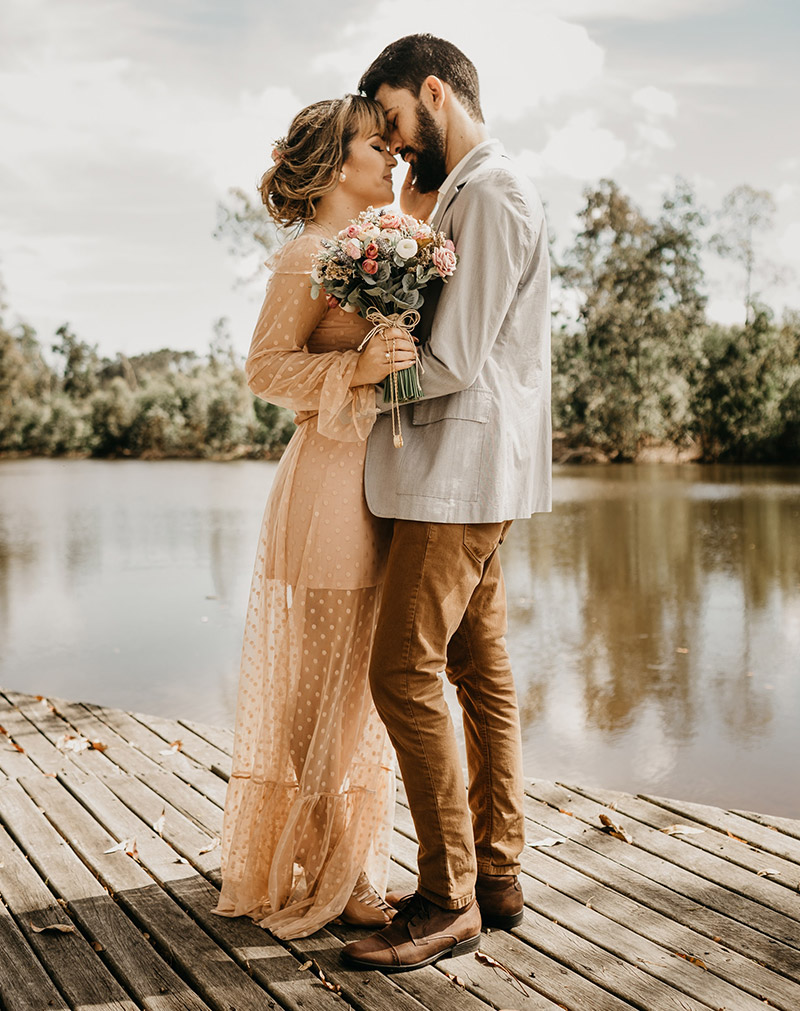
“Marriage is the union of hearts, minds, souls, and spirit, built on love, trust, and understanding.”
DenmarkToMarry.com
Start Planning Your Wedding Today!
Choose ”Denmark To Marry”!
The No.1 Wedding Service to get married in Denmark!
OUR BLOG
The Ultimate Latest Guide for Marriage in Denmark
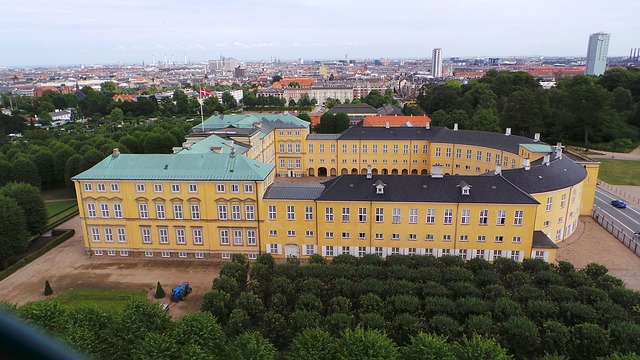
Frederiksberg To Marry: A Quick Guide to Getting Married in Frederiksberg
1. Why Get Married in Frederiksberg? Just 15 minutes from Copenhagen Central Station, Frederiksberg is…
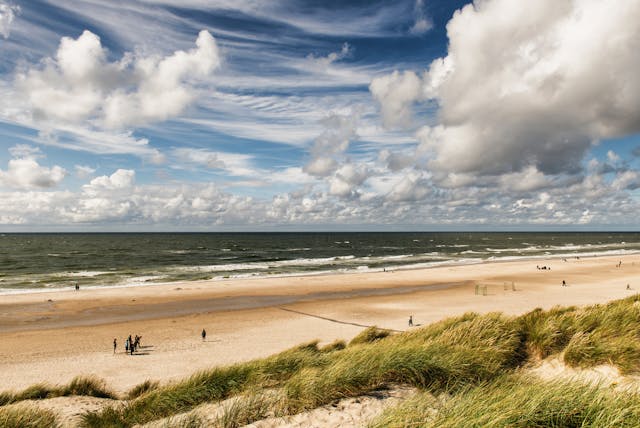
Ringkøbing-Skjern To Marry: A Quick Guide to Getting Married in Ringkøbing
1. Why Get Married in Ringkøbing? This quaint town offers a mix of history, stunning…
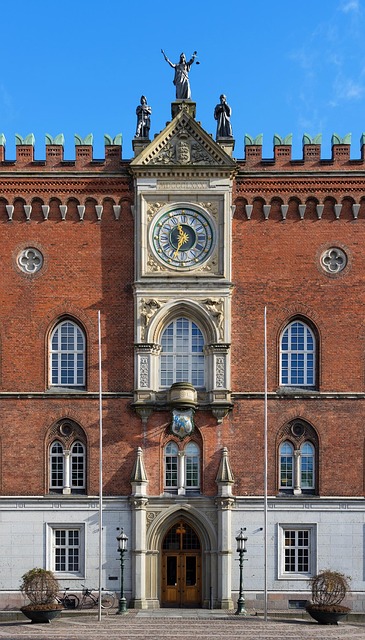
Odense To Marry: A Quick Guide to Getting Married in Odense
1. Why Get Married in Odense? Odense, Denmark’s third-largest city, is full of culture, history,…
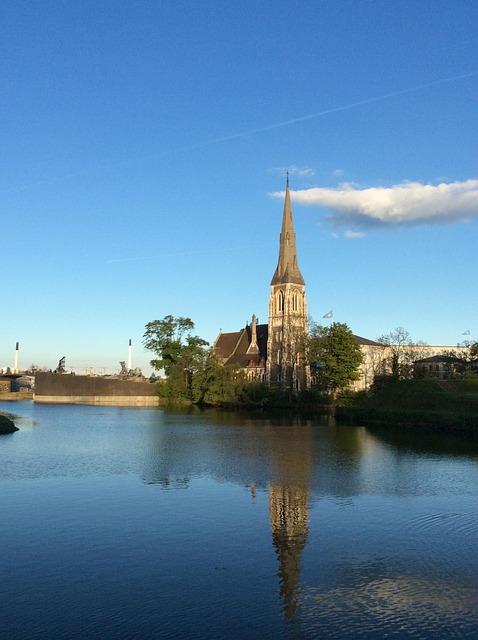
Helsingør To Marry: A Quick Guide to Getting Married in Helsingør
1. Why Get Married in Helsingør? Helsingør is a picturesque town with a rich maritime…
